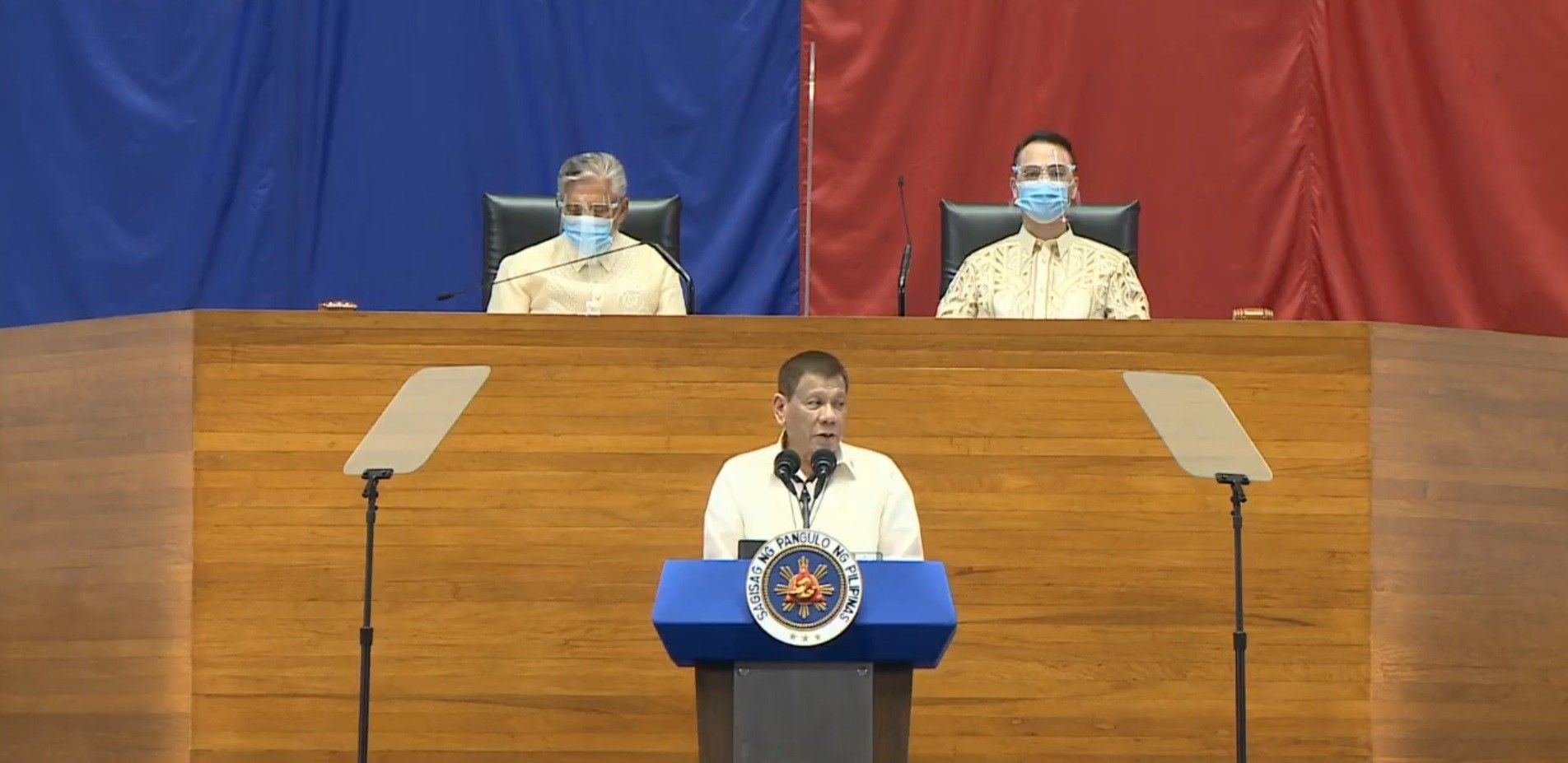Senate ends stimulus impasse with Bayanihan II passage

MANILA, Philippines (UPDATE 1 9:30 a.m., July 29) — A day after President Rodrigo Duterte’s State of the Nation Address (SONA), senators moved swiftly to pass one of the government-initiated stimulus bills, breaking a deadlock with economic managers who wanted to limit new spending attached to the measure.
Voting 22-1, senators approved Senate Bill 1564 known as the Bayanihan to Recover as One Act (Bayanihan II) on final reading. Opposition senator Francis Pangilinan was the lone dissenter.
A counterpart measure at the House of Representatives is also awaiting approval. Once that bill is likewise passed, final deliberations will be held at a bicameral conference committee composed of select Lower House and Senate members. After that, the measure will be up for Duterte’s signature for enactment.
The Senate’s approval capped more than a month’s long deliberations between legislators and economic managers that followed strong disagreements between parties over the amount of stimulus the economy needed to bounce back from the pandemic.
While lawmakers were more than happy to allocate sizable funding to Malacanang, economic officials led by Finance Secretary Carlos Dominguez III insisted on lowering additional allocations under Bayanihan II from more than P200 billion to P140 billion over fears more spending would balloon an already record budget deficit.
“The bill is a product of compromise with a veto-threatening executive,” said Senate President Pro Tempore Ralph Recto in a statement. Recto voted yes to the bill.
“The Executive has put a lid on how much we can appropriate even if we had told them that whether the patient is one individual or 100 million, giving them only a small portion of the medicine required will be wasted on the sick who will not be cured,” he added.
Where would the P140 billion go?
Under the bill, the president’s power to move around budget funds within the P4.1-trillion outlay, without Congress approval, is extended until September 30. The power was asked by the administration as legal cover against potential Charter violations that may spring from budget realignments since by default, only Congress is authorized to allocate public funds.
Since the 2020 budget was crafted without foreseeing the pandemic, outlays for COVID-19 programs like the social amelioration program and aid to displaced migrant workers were not included in the outlay when it was enacted last December. Bayanihan II, similar with the now-expired Bayanihan I, fixes that problem.
In addition, P140 billion in new allotments were inserted in the bill, mostly going to social aid programs. The Senate originally wanted new allocations worth P236 billion, but economic officials repeatedly asked that the amount be reduced.
Broken down, P17 billion each was allotted to provide assistance to displaced private workers and public school teachers as well as farmers. A separate P17 billion was allocated for subsidies to the transport sector including assistance to drivers, but also construction of sidewalks, protected bicycle lanes and procurement of bikes.
The labor department's program for informal workers will also get an additional P15 billion to employ displaced employees as "temporary" data encoders or other personnel to assist on pandemic response. Another P10 billion was set aside as aid to tourism businesses, P3 billion to improve ICT infrastructure in public schools, and P1 billion as additional scholarship funds under the Technical Education and Skills Development Authority.
The single biggest appropriation, however, will go to fresh capital to state banks and financial entities. A total of P50 billion will be shared by Land Bank of the Philippines (P30 billion), Development Bank of the Philippines (P15 billion) and Philippine Guarantee Corp. (P5 billion). The last P10 billion was to buy more testing kits.
Inadequate
Pangilinan, in his lone dissent, said funds under the bill are “inadequate to address the economic losses we are now facing.” The economy likely entered a recession as of end-June, following a 0.2% contraction in the first quarter.
“Without an effective management of the spread of the disease, we will be unable to reopen the economy,” Pangilinan said in a statement.
“And in failing to reopen the economy due to the failure of the (Department of Health) to bring COVID(-19) to manageable levels, then our economic recovery will be elusive and widespread hunger and joblessness will persist,” he said.
Apart from Bayanihan II, Duterte also called on Congress to pass the Corporate Recovery and Incentives for Enterprises (CREATE) bill, which would instantly reduce corporate levies to 25% from 30%, while extending the validity of tax perks.
Editor's note: This article was updated to reflect the specific programs to be funded by the additional P140 billion prescribed under the Bayanihan II bill. Voting outcomes were also corrected to 22-1 from the original version of 18-1, following a correction from Senate President Tito Sotto.
- Latest
- Trending
































